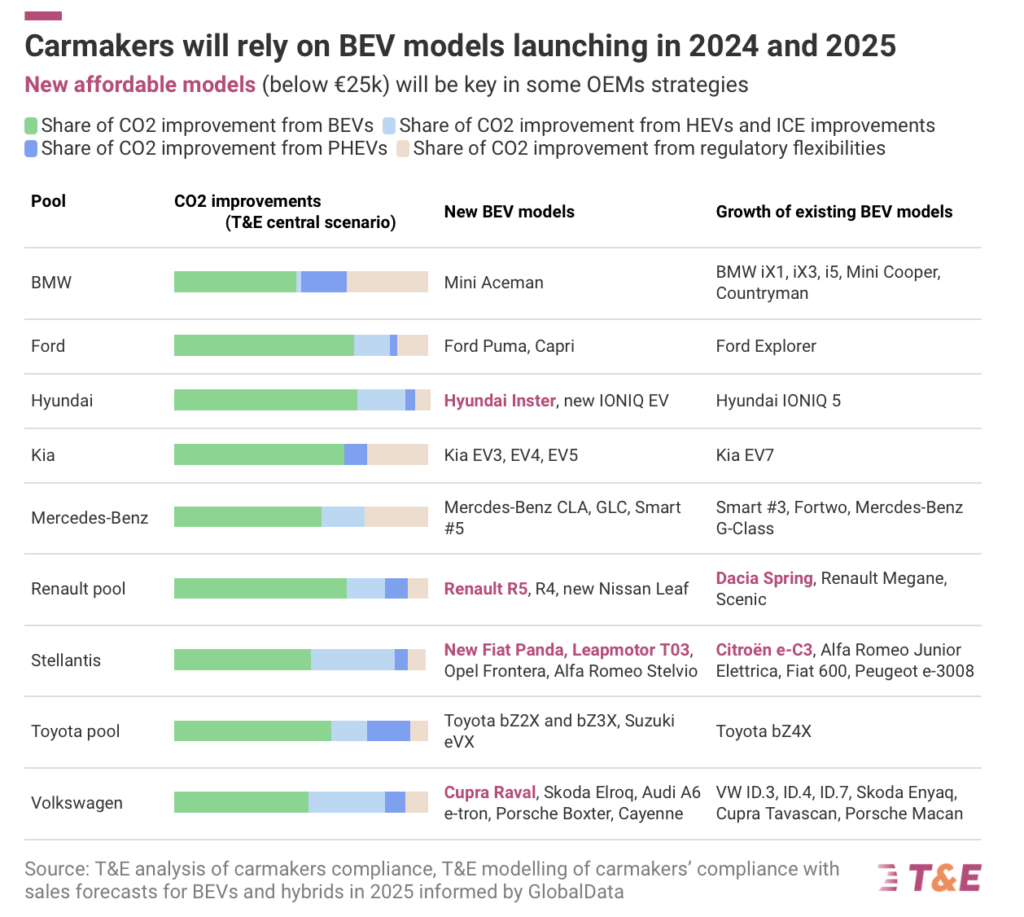Summary
European car manufacturers are gearing up for a significant shift towards battery electric vehicles (BEVs) to meet the EU’s stringent CO₂ targets by 2025. A report reveals that BEVs could account for 20-24% of the market share, with 60% of necessary CO₂ reductions coming from new models. While some companies lean on hybrids for compliance, this strategy may hinder long-term climate goals. The EU remains committed to existing targets, emphasizing the need for supportive policies to bolster EV adoption.
Highlights -⚡️
- ⚡️ BEV Surge: Anticipated 20-24% market share for BEVs in 2025.
- 🌍 CO₂ Reductions: BEVs expected to deliver 60% of required emissions cuts.
- 💰 Affordability: Seven new electric models under €25,000 launching by 2025.
- 🚗 Hybrid Dependence: Major carmakers still relying heavily on hybrids.
- 🏛️ EU Commitment: No delays in CO₂ targets; focus on electrification.
- 🔌 Support Needed: Calls for policies to enhance EV infrastructure and buyer incentives.
- 📈 Future Growth: Anticipated surge in mass-market affordable EVs post-2024.
European car manufacturers are ramping up electric vehicle (EV) sales to meet the European Union’s stringent climate targets set for 2025, according to a new analysis by Transport & Environment (T&E). The study forecasts that battery electric vehicles (BEVs) are expected to reach between 20-24% market share in 2025, driven by an influx of new, more affordable models and regulatory compliance requirements.

European car manufacturers are ramping up electric vehicle (EV) sales to meet the European Union’s stringent climate targets set for 2025, according to a new analysis by Transport & Environment (T&E). The study forecasts that battery electric vehicles (BEVs) are expected to reach between 20-24% market share in 2025, driven by an influx of new, more affordable models and regulatory compliance requirements.
Read the full post at EV Markets Reports.





